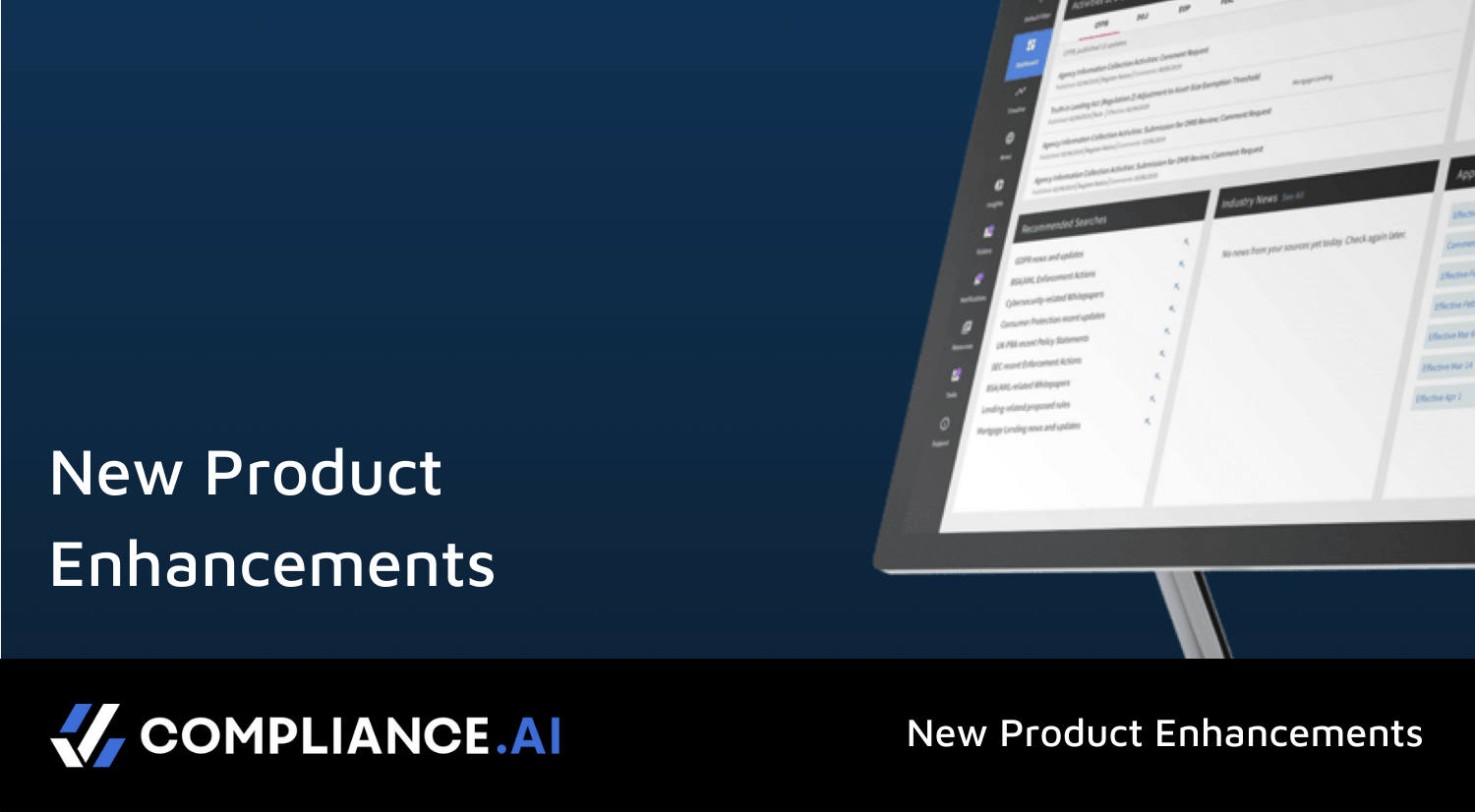Ronjini Joshua (RJ) – Hi and welcome to advisors corner for compliance AI. I’m Ronjini, Joshua, part of the compliance AI team. Today we’re going to be interviewing Professor Jerry Markham, nationally recognized scholar and professor of law at Florida International University at Miami. Hi, Jerry, how are you doing today? Good afternoon. Thank you for joining me, we’re very excited to talk about regulation best interest, as we’ve briefly discussed offline. So I think the best way to get started is to give everybody a quick overview of what is regulation best interest, why should we care? Can you give us a little overview of regulation best interest and important facts?
Jerry Markham (JM) – Sure. The regulation best interest is a decade’s long culmination by the securities exchange commission, to deal with broker conflicts of interest in making recommendations to customers. It has two aspects. One is a disclosure obligation requiring the disclosure of conflicts of interest. And then it has a risk management control system. And I which would include mitigation or stopping conflicts of interest all together, it might be helpful to give a little bit of background on the regulation.
RJ –Please do, Yeah.
JM – Sure. So, forever since the creation of the SEC, the concern has been raised that broker dealers have conflicts of interest in making transaction based commissions. So they recommend it to a customer, the trade is consummated, and the broker is paid a per transaction commission. Those commissions have been fixed for years, but the 1970s, the SEC allowed competition and so we had the breakout between the the discount brokers and the full service brokers, but still concerned continued over this conflict of interest. And then SEC advisory committee in 1995, recommended that the industry move away from transaction based commission to fix committed fixed fees, which were based on percentage of assets under management. Unfortunately, the DC Circuit Court of Appeals struck their rule that the SEC, excuse me that the SEC adopted in response to the tele-report recommendation, the SEC then commissioned a study by the RAND Corporation and I know this is a little bit twisted, but it’s kind of important to get to the end. The rule had been stricken by the court because it was a special compensation that would have required broker dealers to register under the investment advisors act of 1940. So the RAND Corporation was commissioned by the SEC to look to see what was the difference between the obligations of an investment advisor and that of a broker dealer, and they found they were quite distinct. Broker dealers who do not control accounts have very few fiduciary duties. Investment advisors have very broad fiduciary duty. That bounced around for a bit, but the Dodd Frank act in 2010, relaunched this whole issue and asked the SEC to conduct a study to determine what differences there are between investment advisor and broker dealer duties, and to make a recommendation as to whether they should be the same or to take other action. And the SEC staff recommended that the investment advisory duties be applied to broker dealers, the securities exchange commission rejected that approach and adopted regulation best interest. So again, it’s a long road, but that’s how we got to where we are. There’s just one other aspect that we should consider is that the Department of Labor jumped in on this, after the Dodd Frank act, and passed a regulation a fiduciary rule, which would have imposed broad fiduciary duties on broker dealers that were servicing section 401k and other related accounts. That rule was stricken by the Court of Appeals. And so we were left with regulation best interest by the SEC, for covered broker dealers, and it’s some tracks somewhat the Department of Labor regulation.
RK – Okay. You covered a couple of questions I had, which is one of them was about Dodd Frank and how it played into it. So you nicely segued into that naturally.
JM – So what happened again, the SEC, remain rejected. It’s the staff recommendation that they have uniform duties for broker dealers and investment visors, and an adopted regulation best interest. There’s now been calls in Congress for a return to take another look at that and see if we should have the same broad duties imposed on broker dealers, instead of or in addition to regulation, best interest, so it’s not gone away yet.
RJ – Okay. Well, I think the next question and you mentioned a couple of players here, but who has been and who will be most impacted by regulation best interest once it goes through?
JM – Okay, so the regulation is going to apply directly to broker dealers that are making recommendations to customers. So they are going to have to be subject to the full panoply of those that regulation, and it’s massive. But what’s happened is the thought was that discount brokers who did not make recommendations would have not have obligations. But it turns out, there’s a recent case that was brought by the Massachusetts securities department, which has a regulation similar to regulation, best interest, and it charges that making a list of popular stocks available to discount customer discount broker customers could constitute a recommendation, and that a suitability analysis should have been made for each customer, not just supplying these, these lists of popular stocks. So if broadly applied this could this could be have very, very broad ramifications for the entire industry.
RJ – Wow. What should we be monitoring and looking at when we’re, I mean, you said it’s, you know, a massive document. So what are the key key areas, and obviously, recommendations seems to be one of them, that people should be looking at when they’re dealing with this and, you know, incorporating this into their business.
JM – So I think a key, a key aspect is you’re going to have to identify conflicts of interest. And you’re going to make full disclosures of those. And again, a recent case brought by the SEC, against a discount broker charge that they had not made adequate disclosures, about, about payment for order flows, that they were sending customer orders to high frequency traders, and for a time had not disclosed the effects of that. So I think that any any item on which a broker dealer is making money, okay, from a customer, then that has to be disclosed. And I don’t know if that’s from money market funds, there’s been concern that, you know, excess funds are being held and money market funds. Whatever the payment for order flow, whatever the the profit basis or revenue basis for the trading has got to be considered. And I think there’s gonna be a lot of focus on the no commission brokers, because there’s no free lunch on Wall Street, and they’re earning money somewhat. And that’s going to have to be fully fully disclosed.
RJ – Well, I think that kind of leads into what is the potential penalties that people could face when they’re not doing this properly?
JM – Yeah, well, let me just move the screen a little bit, because I got a note here, there was just a settlement with $65 million. In an SEC case, where a discount, no commission broker had not disclosed that the HFT high frequency trader fees. So the regulators are certainly going to be taking a look at these items. And the popularity of these no commission trades during COVID-19. I mean, we’re getting millions and millions of trades from 1000s of new traders, and a lot of these are inexperienced traders. So I think there’s going to be some scrutiny of that if we get market correction, especially, there’s going to be some scrutiny of that.
RJ – That’s a really important topic to obviously bring up since we’re in this current climate. How has COVID-19 affected this situation? And how will it affect the people who are partaking in this kind of trading?
JM – Yeah. So again, it’s going to be well, first of all, I don’t know how the industry has done so well through COVID-19. And a lot of these, these new traders have got their own trading platforms where their own rooms so they can chat and talk with it. Compliance is carried on throughout this. So it’s, it’s for that it’s been good. And the market has done remarkably well, as everybody knows. The problem is that this regulation came into effect, right in the middle of COVID-19, June 30. So I think the firm’s bless their hearts if you are getting this implemented, but we’re in the middle of it right now.
RJ – Right. So I think the biggest thing is to have a good takeaway and have some lessons that we need to learn from this to make sure that everyone is compliant and can can move forward in business. What are some key takeaways that people from the compliance industry can take away from regulation best interest, what do they need to be aware of, and how should they apply those?
JM – Yes, the things we see criticizing the fixed fee accounts are things like reverse churning. There’s not enough trading in the account. It just sits there and you get your fixed fee whatever happens, now there’s an incentive to increase the value of the account, because you get more percentage of your assets on our management of increases. But is that really enough? Do brokers really monitor the accounts, they have the same incentive to monitor their customer counts as they did before. So someone needing advice, may not be getting the advice, even though they’re paying more in fixed fees, particularly in accounts that are not very, very active. So that would be one thing I would look for. Another thing is that recommendations are not defined. And the rule so it can be anything. And I just mentioned that case where
RJ – Yeah, it seems like a gray area.
JM – Exactly where you give a list of topics, and you’re going to provide some information, I mean, about the stock market. So which of those falls into a recommendation? Which is a mere suggestion? What is a for your information generally? I think those are gonna be some very difficult lines to draw.
RJ – Yeah, that’s very good point. This seems like a really loaded topic. I feel like there’s a lot more that you can be telling us. Is there anything that we kind of haven’t talked about (in general), as we talked about just kind of the generalization of regulation best interest and how it affects the industry, things that anyone should know, you know, going into 2021? I can’t believe we’re here.
JM – Sure, so I think what’s happening is we’re seeing a consolidation of the industry, we’ve had some massive mergers with discount brokerage firms and some full service firms and among, you know, discount firms themselves. So that consolidation, I would expect to continue. And that’s going to mean that there’s going to be concentrated investments at those at those firms. One of my concerns or concerns expressed by by others, is that these these accounts will be put into the same product. And they will be robo advisors. And so people who need personalized investment advice are not going to be able to obtain it. And they are going to be, you know, again, putting a robo account with others. And then if that concentration occurs in particular investments, concentration is always dangerous in a market setback. So we could have some massive fallout from that kind of concentration.
RM – Yeah, there seems to be a lot of unknowns right now.
JM – yeah, well put Exactly. Yeah.
RJ – Yeah. Well, thank you so much for joining us, and giving us a breakdown of regulation best interest. I think this is going to be useful for a lot of people. And hopefully, we’ll all be able to monitor and manage our situation. And thank you, viewers, for joining us. This is Compliance AI and we’ll be talking to you soon. Thanks. Thanks, Jerry.
Jerry Markham is a nationally recognized scholar and professor of law at Florida International University at Miami.





